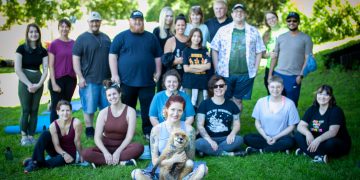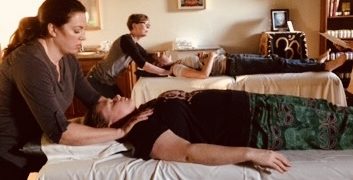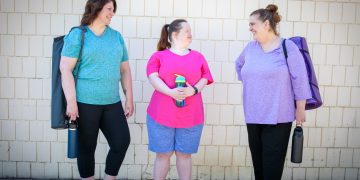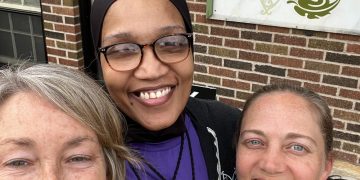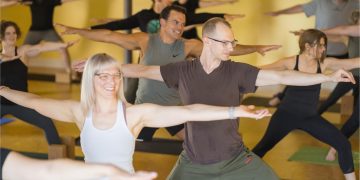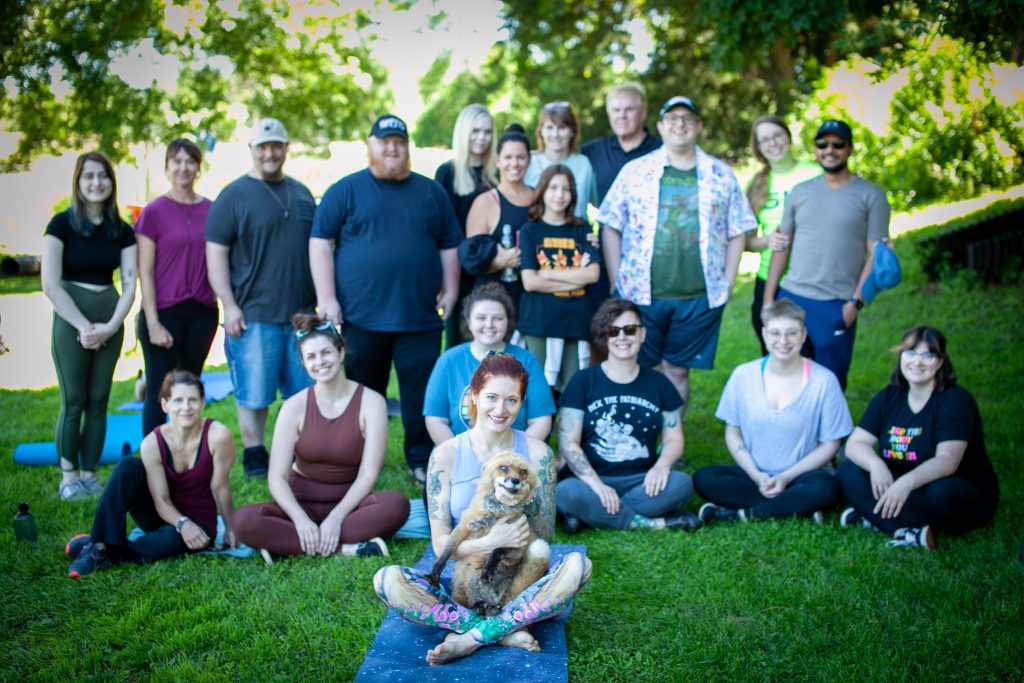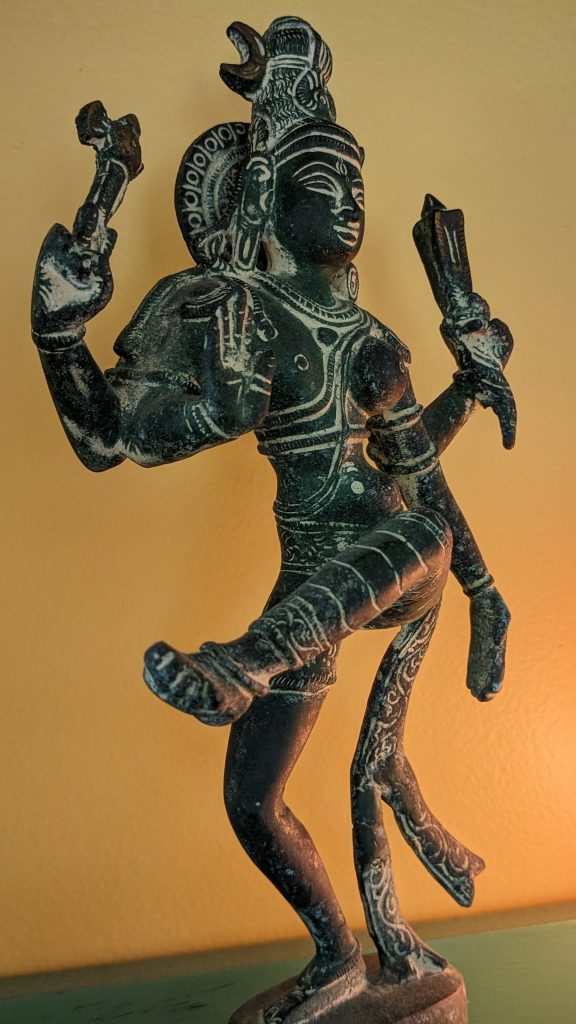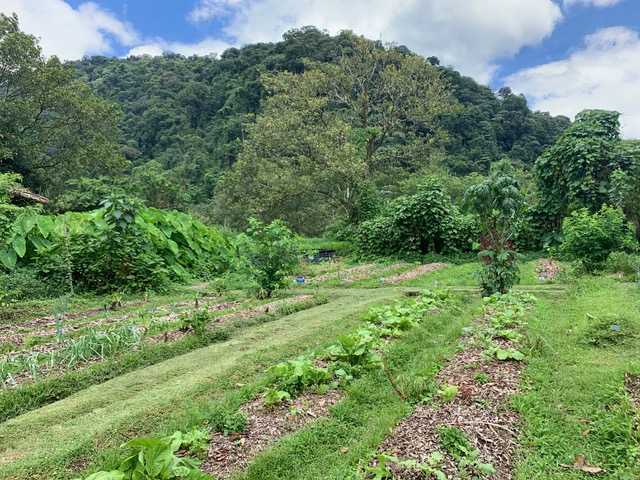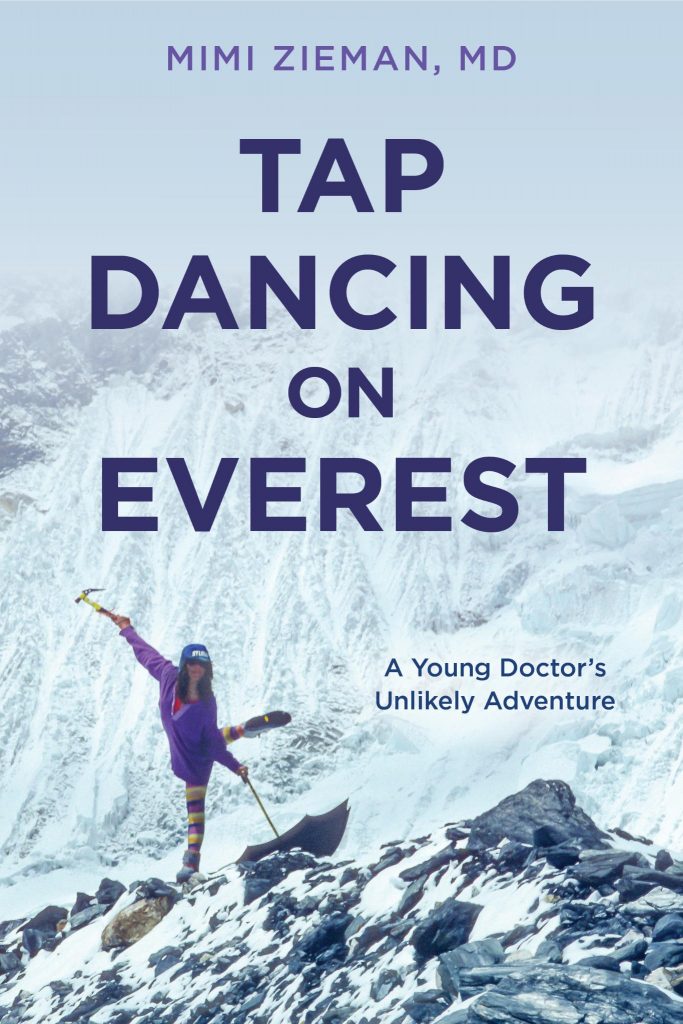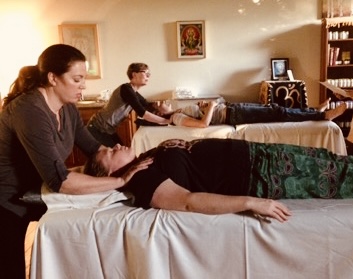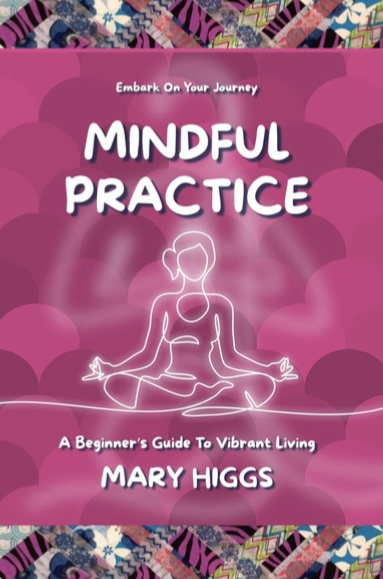Lauren Kvasnicka joined Karuna Community MN (Karuna) in 2020, right before Covid shut everything down. Eager to grow the nonprofit’s reach, Kvasnicka comes from a public health and social justice background, and followed other organizations bringing yoga to incarcerated communities. Karuna’s mission “to offer compassion based mindfulness tools, such as yoga and meditation, to people impacted by the criminal legal system,” currently involves seven locations throughout the Twin Cities: Anoka and Hennepin County Jails, the Ramsey County Juvenile Detention Center, two reentry centers in Roseville and Minneapolis, and the Salvation Army Adult Rehabilitation Center.
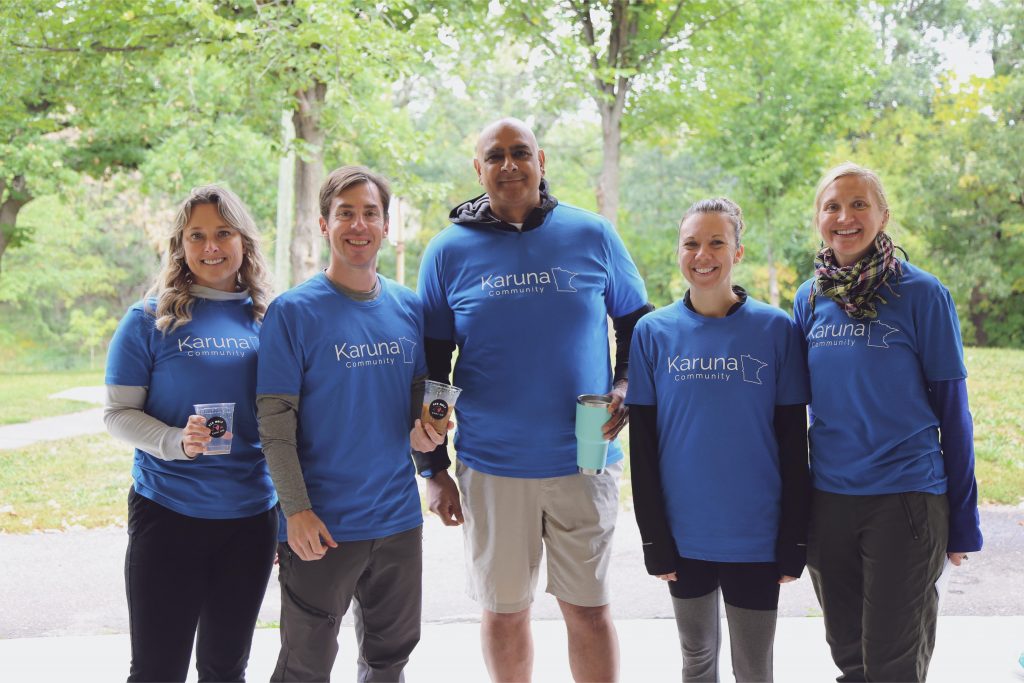
Criminal defense lawyer Mike Millios (now a Board Chair) founded Karuna, which became an official 501(c)(3) nonprofit in 2019. Kvasnicka was hired as the first employee in March 2021 and moved to Executive Director later that year. Completely funded by individual donors, Karuna stayed afloat during the pandemic by providing Zoom classes as they waited for Hennepin County Jail (Karuna’s first and longest running partner) to continue their programming. Kvasnicka runs operations and programming, also coordinating programs in various facilities. Their word choice for their classes is very intentional. “In an attempt to eliminate otherness,” Kvasnicka explains, “we use facilitators and programming as opposed to teachers and classes. That way we create more of a community structure within our programming.”
Currently, Karuna’s seven facilitators operate on a stipend, unless they choose to volunteer their time. “The ultimate goal,” says Kvasnicka, “is to have everyone paid, because that’s the most sustainable model.” Onboarding new facilitators takes time and a conscious effort to make sure everyone has knowledge of the systems they’ll be working in. “All of our facilitators have a trauma-informed/conscious background and a basic understanding of the criminal legal system here in Minnesota,” explains Kvasnicka. “I think that’s what makes us unique from some national and international programs. We educate our facilitators and keep conversations going about the systems, populations, and happenings in our community.”
While Karuna doesn’t require its facilitators to have a particular training (like a YTT) before joining, Kvasnicka is purposeful in how they approach yoga in the criminal justice system. “Yoga is trauma-informed in and of itself but there are techniques and styles of teaching that can aid in nervous system regulation as opposed to stimulation. We talk about the dynamics of and the types of trauma prevalent in the populations that we’re serving in order to create the most safe and supportive environment. We emphasize grounding and autonomy as tools for individuals to connect and regulate their nervous systems.”
Karuna doesn’t require certain credentials because it can act as a barrier, limiting those from applying who might have a different background but helpful knowledge that would make them beneficial to the organization. One of Karuna’s goals is to have facilitators involved with the system, re-entry, or recovery join the team.
Program attendance at all locations is voluntary based, as no one is required to attend a class Karuna provides. “We think it’s the best model for them to be there if they want to be there,” says Kvasnicka. “We know yoga is a practice for healing and not force. We see better engagement when it’s voluntary, when choice is involved.” Programs vary from 35 minutes to an hour, all depending on the facility’s needs and rules.
Some spaces allow for blankets, blocks, even chairs, while others don’t allow any supplies. The dynamics of the population they serve and the regulations of the facility help shape the individual programs, but Karuna only has two rules for participants: stay on your mat and don’t disturb those around you. Other than that, they’re invited to move and participate in whatever way they want. “We have had some people lay down the entire time,” says Kvasnicka. “We encourage them to do what serves them best, like any yoga class should.”
When asked if Karuna is able to track the impact of yoga on individuals at the facilities, Kvasnicka nods her head adamantly, saying, “We’d love to be able to track recidivism [the tendency of a convicted criminal to reoffend], but it’s not possible currently. We have some program evaluations that we do regarding number of attendance and programs taught. But we’re so new.” She goes on to explain that in some facilities, they aren’t allowed to even bring in paper and pencils. It would take a lot of work, cooperation from the county, and many years to begin to come up with any concrete data, but national data does support that programming (whether it’s yoga, Bible study, or other classes) positively impacts those who attend.
Mentioning legislation currently in the works, Kvasnicka feels hopeful about the Minnesota Rehabilitation and Reinvestment Act (MRRA) that “allows people…to earn early release and earned supervision abatement by successfully completing goals identified in their Individualized Rehabilitation Plan” (MN.gov). While Kvasnicka acknowledges the importance of data, she sees the impact of storytelling as equally powerful. “We are very much an organization that values storytelling,” she explains. “Those stories are what keep us going. It’s so great when I hear a participant say, ‘This helped me feel better today,’ or ‘I can’t wait to find a yoga community upon release.’”
As part of the Transition Coalition, Karuna is passionate about providing tools for folks re-entering civilian life after incarceration. “There are very little tools and groups that do this,” Kvasnicka explains, adding, “we play an important role in being one of the places that someone might feel comfortable reaching out to while they’re either incarcerated or in reentry.”
While Karuna currently provides programming in jails and reentry centers, they’re hoping to expand to other facilities within the Minnesota Department of Corrections (DOC) and Federal prisons. “The need is there,” says Kvasnicka. “We’re eager to get in and continue to serve under-resourced populations.” Kvasnicka submitted an application to the DOC, noting they get asked frequently by program participants if they’re at other locations in Minnesota. “It’s trickier with their policies regarding the pandemic; they’ve been slow to trickle back in programs that already existed.”
While the work is rewarding, the challenges keep coming. Programs often get canceled due to lack of staff or resources. It’s hard to make connections or get a foot in the door to create new programming at facilities. Another challenging aspect? Building relationships with participants in locations with high turnover. To combat their inability to contact participants, Karuna offers a free weekly Zoom meditation those released can attend. They also run a mat donation program called “Own your Own Practice,” where anyone who participates in their programming can request a mat to keep. “Hopefully,” says Kvasnicka, “that keeps folks coming back, knowing that we’re a trusted source.” And for those who work in the criminal justice system, Karuna provides compassion fatigue and secondhand trauma workshops. Kvasnicka says the most rewarding aspect of her work is the community. “Yoga is connection. We share breath, movement, laughter, tears, and stories.”
Kvasnicka encourages others to get involved with Karuna, even if it’s just to educate themselves on what the criminal legal system looks like in Minnesota and advocate for system involved folks. She’s constantly looking for volunteers and partners because those going through the system always need support. She’s hopeful for growth and the future of Karuna Community MN, stating, “We continue to hear praise and support for our program participants and that the need is high. With changes currently being made in some corrections facilities, I hope that we can expand our programming across facilities in Minnesota. I see lots of opportunities for growth and sustainability as we move forward.”


